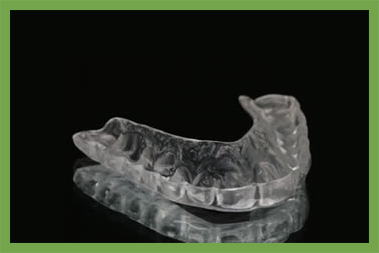GENERAL DENTISTRY
GET STARTED
YOUR FIRST VISIT WITH US - WELCOME
Your first visit with our office as a New Patient gives us the opportunity to get to know you, what your concerns are in regards to your oral health, what you ideally want from your experience with us and how we can work together to achieve your oral health goals.
What to expect on your first visit with us:
-
- a review of your medical and dental history so we can be aware of any concerns or problems
-
- an oral cancer examination including the VELscope oral cancer screening device
-
- a tooth examination; checking for cracks, decay and worn restorations
-
- a TMJ (jaw joint) assessment, to check for inflammation, tenderness, or bite problems
-
- low-radiation chemical-free digital x-rays, which show us decay, infection, bone condition
-
- digital photographs to magnify our view of your teeth and any restorations
-
- a discussion of any concerns or expectations you may have
The dentist will then review any treatment that may be necessary for you, explain the procedures, and review the steps and appointments needed. You may be given several options for treatment. The treatment coordinator will meet with you to discuss these findings and will go over the pros and cons of the various choices so that you can make an educated decision about your treatment. Any questions or concerns you have can be addressed with the doctor and the treatment coordinator to ensure you are making the decision that best suits your needs.
ADULT HYGENE
When you see one of our registered dental hygienists at The Beaverton Dental Office you will receive more than “just a cleaning.” You are being seen a by a qualified dental professional that will do a complete examination of the soft and hard tissues of the oral cavity, take digital x-rays as necessary and do a comprehensive screening for gingivitis, periodontal disease as well as oral cancer. They remove plaque and tartar from your teeth and below the gumline, as well as apply cavity preventive agents such as fluoride. Not only are they focused on the beauty of your smile, they’re also concerned about your health. A review of your medical history can help them stay informed of your overall health, any medications and any illnesses that may impact your dental health. All of the hygienists at The Beaverton Dental Office demonstrate a sincere desire to ensure each client experiences the most relaxed dental care. As a practice, we are true believers that preventative care and education are the keys to optimal oral health. We work with each client on a one-on-one basis to develop a customized and effective homecare routine based on their individual needs. How often you need a professional cleaning depends on how well you brush at home and on how susceptible you are to build up. We pride ourselves in providing the care you need to keep your smile healthy.

CHILDRENS PROGRAM
At The Beaverton Dental Office our dental hygienist’s and level two dental assistants provide high quality examinations and cleanings for young children and teenagers. Our dental professionals work one-on-one with children from their first visit at the dental office to ensure that they experience a fun, relaxed and educational appointment. The children’s program involves a comprehensive examination of your child’s oral health, removal of plaque and tartar, nutrition guidelines, preventive agents and a hands-on demonstration to ensure proper homecare between dental appointments. At The Beaverton Dental Office our main goal is to prevent any oral health problems that children may encounter during their adolescent years. Our dental professionals work together with parents and children to ensure proper maintenance visits and homecare routines that will help children to have a healthy and happy smile that will last them a lifetime.
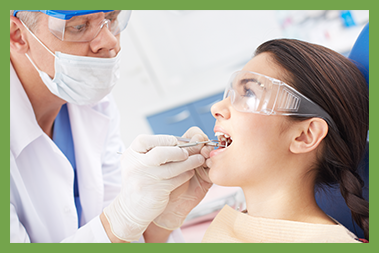
ORAL HYGENE PROGRAM
Our Oral Hygiene Instruction Program is a comprehensive look into targeting the bacterial toxins that are responsible for gingivitis and periodontal disease. Patients will be educated on current disease theory and the contributing factors that can lead to gingivitis and periodontitis. By using various visual aids to assist in learning and understanding, we take a hands on approach to teaching patients how to implement safe and effective treatment to specifically target inflammation. With a strong focus on prevention, together we can help stop the disease process from worsening.

RESTORATIVE - COMPOSITE FILLINGS
A composite (tooth colored) filling is used to repair a tooth that is affected by decay, cracks, fractures, etc. The decayed or affected portion of the tooth will be removed and then filled with a composite filling. These fillings can also be used to close Composite-filling-replacementsspaces between teeth and fix chipped or worn teeth. There are many types of filling materials available, each with their own advantages and disadvantages. You and your dentist can discuss the best options for restoring your teeth. Composite fillings, along with silver amalgam fillings, are the most widely used today. Because composite fillings are tooth colored, they can be closely matched to the color of existing teeth, and are more aesthetically suited for use in front teeth or the more visible areas of the teeth. As with most dental restorations, composite fillings are not permanent and may someday have to be replaced. They are very durable, and will last many years, giving you a long lasting, beautiful smile.
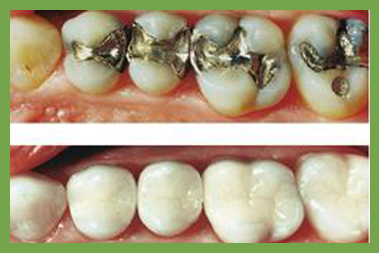
ROOT CANAL THERAPY
Root canal therapy is needed when the nerve of a tooth is affected by decay or infection. This happens when decay has reached the tooth pulp (the living tissue inside the tooth), an infection or abscess has developed inside the tooth or at the root tip, or injury or trauma to the tooth has occurred. In order to save the tooth, the pulp (the living tissue inside the tooth), nerves, bacteria, and any decay are removed and the resulting space is filled with special, medicated, dental materials, which restore the tooth to its full function. Signs and symptoms for possible root canal therapy are an abscess (or pimple) on the gums, sensitivity to hot and cold, severe toothache pain, swelling and/or tenderness, and sometimes no symptoms are present at all.
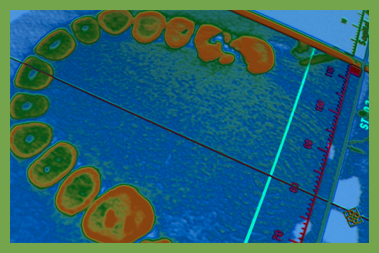
SPORTS GAURDS
The importance of an athlete wearing a sports mouthpiece when participating in almost any type of sport cannot be over emphasized. Sport mouth guards are resilient plastic appliances that have been designed in to cover over and encase an athlete’s teeth and the gums and bone that support them. When a guard is worn, it helps to provide protection for the hard (teeth and jaw) and soft (lips, cheeks, gums) tissues of the mouth by way of absorbing and redistributing the forces generated by traumatic blows. Athletic mouth guards can also help prevent tooth damage that might be caused by tooth to tooth contact. Hard collisions or blows directed to the head or mouth can result in a motion where the athlete’s jaws come together forcibly. The resiliency of that portion of a mouth guard that covers over the chewing surface of the wear’s teeth can help to cushion the effects of this reaction and therefore help to prevent tooth damage.
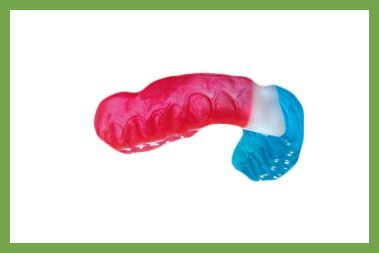
NIGHT GAURDS
Bruxism is the clenching together of both the upper and lower teeth. Clenching can cause pressure on the muscles, tissues, and other surrounding structures of the jaw, and can cause jaw joint disorders, headaches, neck pain, jaw pain, ear pain, tense muscles, and excessive wear on the teeth. Collectively, these symptoms are referred to as “TMJ” problems (temper mandibular nightguardjoint). Since most of the damage typically caused by bruxism is during sleep, a night guard can usually be made to stop further damage. A night guard is custom made to fit over the lower teeth. With the night guard in place, the patient can’t grind their teeth together and cause further damage. The night guard has three purposes. The first purpose is to simply put something in between your two sets of teeth, top and bottom, that’s softer than your tooth enamel. The plastic that a night guard is made out of, even though it feels hard, is much less dense than your tooth, and so if somethings going to wear, the plastic will wear. The second thing the night guard does is because it has some thickness to it, it gives the muscle a different position to rest in, and to function in. Striated muscles, if you stretch them a little bit, if you extend them, and then contract them, its therapeutic for the muscle. It’s the same thing a runner would do when they’re stretching their legs. The third thing the night guard does is gives your jaw support and yet freedom of function. The purpose of a custom made night guard is that it can be shaped to fit the patient’s bite exactly. When you bite down you’ll have full, even support.
